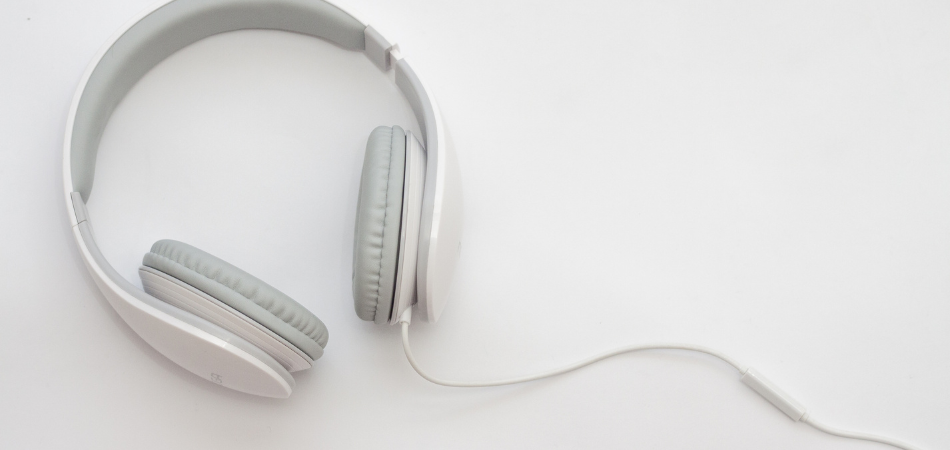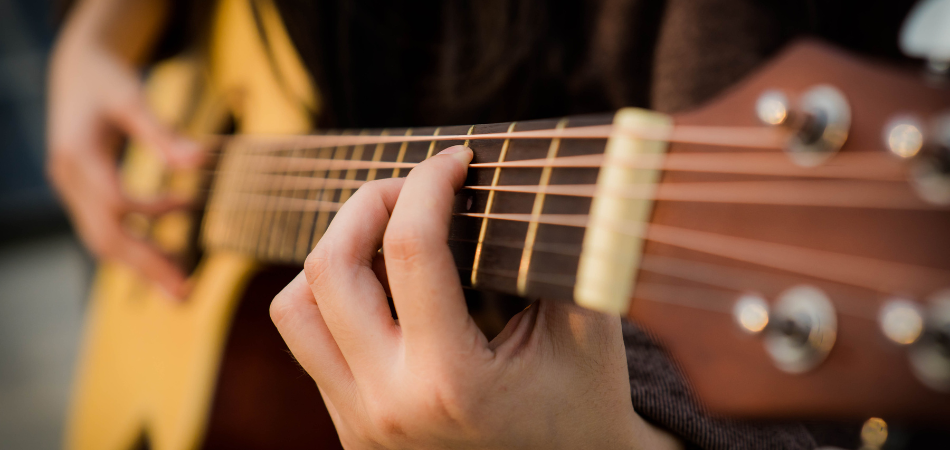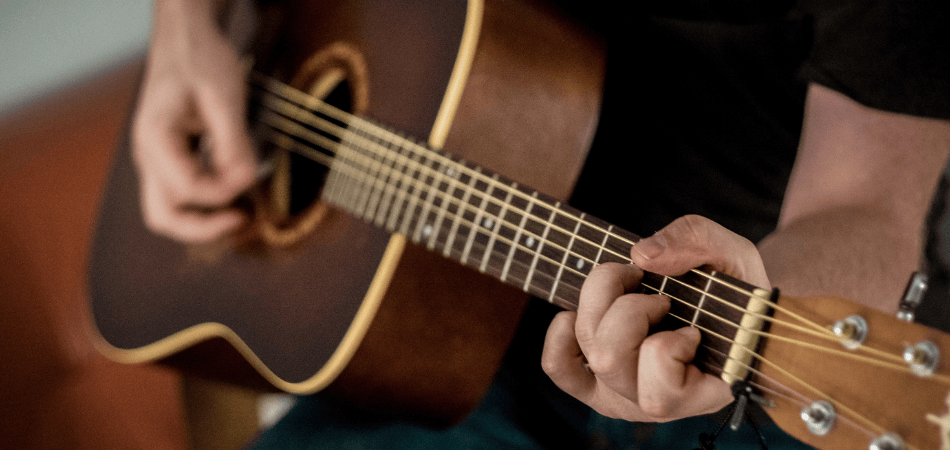Music therapy
Have you ever stumbled across a song that resonates with you in a way words can’t express? The lyrics and harmonies come together in a way that you feel forced to play it over on repeat, just to get it out of your head. If you can relate to this, you are not alone, and countless others around the world experience this every day.
Regarded by many as a universal language, music is an art form that offers countless benefits for each and every one of us. Here at Liberty House, we recognise the healing potential of music, incorporating it into our treatment programmes to help clients get started on their rehabilitation journeys.

What is music therapy?
Many of us can appreciate the therapeutic quality of music, understanding that certain songs can brighten our mood and uplift us, while others put us into a more contemplative, subdued headspace. In fact, studies show that, for many adults, simply listening to certain music over an extended time period can reduce depressive symptoms and promote all-around wellness.
As a therapeutic approach, music therapy utilises the naturally mood-enhancing qualities of music to help improve mental health and overall wellbeing. Suitable for anyone to engage in, music therapy works with individuals to meet their personal goals through musical intervention, practising techniques which can be used and applied to their everyday lives. A well-established practice, music therapy can help to:
- Reduce stress levels
- Enhance the ability to self-express
- Develop new communication skills
- Improve self-esteem
- Manage symptoms associated with anxiety and depression
How does music therapy work in rehab?
Music therapy is such a unique practice for those in rehab treatment as it helps them tap into emotions that they may be unable to express verbally. For many individuals, being entrenched in active addiction can be a tough and challenging journey, but with music therapy, residents can vent their feelings and communicate through a new medium.
A music therapy session can range from clients listening to calming music for relaxation to individuals playing musical instruments to emote and share their feelings. Some features of music therapy in addiction treatment can involve:
- Playing or improvising with musical instruments
- Composing songs
- Rehearsing and performing music
- Taking part in musical games and activities

What does a music therapy session look like in rehab?
Each music therapy session will look slightly different according to the therapist leading the class and the precise goals of the clients. However, music therapy sessions are usually conducted within a group environment, with a qualified counsellor present to direct the clients. As a warm-up exercise, the group may be asked to perform a song together or choose a piece of music that resonates with them or reflects how they are feeling. This task alone requires the individual to embrace their emotions head-on, searching for a piece of music that speaks on their behalf.
Following this, clients may then be encouraged to use their mode of music to express themselves, taking an instrument and exploring their emotions through sound. Taking part in musical activities with other residents also helps to build strong connections, experiencing the healing qualities of music with other clients who have undergone similar challenges.
After the session draws to a close, clients might receive some final feedback from a counsellor, bringing together some final thoughts and preparing residents to leave the treatment room to return to their regularly scheduled activities.
Benefits of music therapy in addiction treatment
Alongside other addiction therapies, music therapy can be an excellent addition to any resident on their recovery journey. Here are some ways that music therapy can help clients undergo addiction treatment:
It promotes relaxation
Music therapy can be used as a form of meditation, allowing residents to relieve their stress without turning to unhealthy substances or behaviours. It is known to greatly reduce stress and anxiety levels, a common trigger for relapse, especially when the music being listened to or performed is soothing and calming. It is also highly useful in minimising other triggers for relapse, such as boredom, anger or fear.
It allows clients to translate difficult emotions
Addiction is not simply physical; it has the potential to impact our emotions and greatly affect our mental health. With music, the type of tunes we choose to listen to can also heavily reflect and influence our moods. Music therapy aims to offer an outlet for clients to express themselves, which can prove particularly beneficial if they are navigating painful experiences, trauma, or poor mental health. As a creative and expressive medium, music therapy allows the individual to explore a new form of communication, expressing thoughts in a way they may not have been able to put into words.
Encourages growth and creativity
Of course, music doesn’t just have to be about releasing negative emotions; it can also be highly stimulating, uplifting and inspiring. Known to sharpen focus and improve concentration, music therapy can motivate clients to see through the early stages of recovery and push through into a healthier life. Music therapy can also be very beneficial for someone who feels that their addiction has isolated them from their world and their creativity. It assists in healing, fostering continued growth and emotional expression.
Music therapy at Liberty House
At Liberty House, we aim to provide our clients with a variety of tools that they can continue to use once they are discharged from treatment. Extremely beneficial and easy to access, music therapy is so transformative as it can be applied outside of a rehab setting and taken on the journey to continued recovery.
Upon entering our facility, we may offer you music therapy as part of your treatment programme, but this will depend on when you choose to recover with us, as we work with different creative therapists throughout the year. It is always possible to contact a member of our admissions team before treatment, and they can enlighten you on which creative therapies we will have available at the time.
Instrumental to your recovery
In its infancy, recovery can feel raw, overwhelming, and at times even frightening. As many addicts are often adept at numbing their emotions rather than expressing them, treatments like music therapy can offer a safe and non-threatening medium to face their emotions and overcome them in healthy ways.
If you feel that you are looking for an alternative to traditional addiction treatments, Liberty House can help you gain some insight into your addiction, using music as an expressive force to inspire and motivate you. If you would like to learn more about our centre and what we offer, do not hesitate to contact a member of our team right away.


